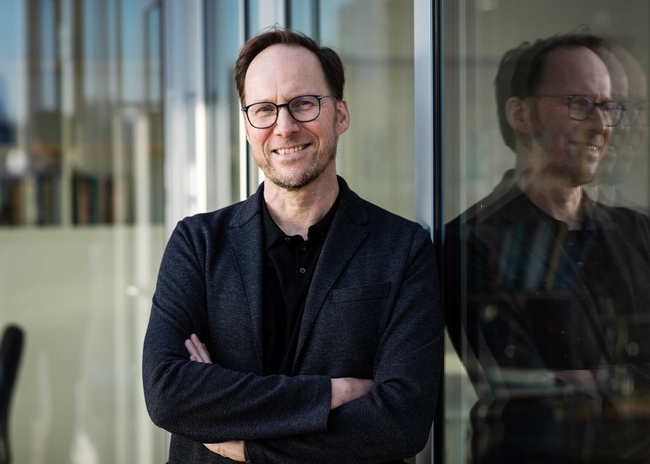09/02/2023 | At the beginning of the month, Raimund Bleischwitz was appointed Professor of Global Sustainable Resources by the University of Bremen. He became scientific director of the Leibniz Centre for Tropical Marine Research (ZMT) at the start of last year. The expert in environmental and resource economics will conduct research and teach at the University of Bremen as part of a cooperative professorship in Faculty 8 Social Sciences. In research and teaching at the University of Bremen he will focus on the Climate Ocean Nexus and the shaping of a Blue Economy. His lectures will deal with international climate and resource politics.
Jutta Günther, President of the University of Bremen, is happy about the cooperation with Raimund Bleischwitz: “Sustainability, climate justice and climate neutrality will shape the university’s new mission in the future. A scientist with Raimund Bleischwitz's focus on sustainable resources and their connections to ecosystems fits perfectly into our new orientation. I am convinced he will make many valuable contributions to our institutional agenda.”
Raimund Bleischwitz adds: “I am pleased that the important topic of sustainable use of natural resources and recyclable materials in business and society is now visibly anchored at the University of Bremen. In these times, the cooperation between the ZMT and the University of Bremen is particularly important.”
Before joining ZMT and the university in Bremen, Bleischwitz held the professorship of Sustainable Global Resources at University College London (UCL), one of the top 10 universities worldwide, and was Director of the Bartlett School of Environment, Energy and Resources.
Raimund Bleischwitz conducts research on the productivity of natural resources in the economy and society and addresses the multidisciplinary challenges of resource use. His work emphasizes both the interaction between resources and ecosystems ("nexus") and the opportunities of resource policies for innovation and improved living conditions.
Recently, he was ranked among the world's most cited 2% of scientists in what is informally known as the "Stanford List". This was shown in a dataset compiled by a team of researchers led by Stanford University scholar John P. A. Ioannidis. The publicly available data is based on the bibliometric data in the Scopus database and refers to the researchers' entire careers as well as to the year 2021.
In autumn last year also became head of the International Ocean Institute (IOI) Germany.





